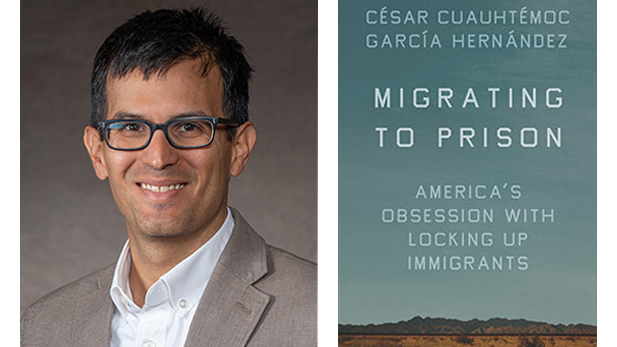 Adiba Nelson with her daughter Emory.
Adiba Nelson with her daughter Emory.
Courtesy of Adiba Nelson
April 23, 2020

Featured on the April 23rd, 2020 edition of ARIZONA SPOTLIGHT with host Mark McLemore:
- In part three of our series about food insecurity, Alisa Ivanitskaya profiles the mission of the Caridad Community Kitchen. It’s a service of The Community Food Bank of Southern Arizona that provides free meals, with safety and dignity always on the menu. To find distribution sites for community meals, and emergency food boxes, visit communityfoodbank.org/Get-Help. Also, their telephone number is (520) 622-0525. Pima County One Stop hotline number is (520) 724-5735.
 Before the COVID-19 pandemic, Caridad Community Kitchen was serving "hot meals" in addition to "grab&go" lunches. Now the program has almost doubled its production in size but prepares mostly sandwiches.
Before the COVID-19 pandemic, Caridad Community Kitchen was serving "hot meals" in addition to "grab&go" lunches. Now the program has almost doubled its production in size but prepares mostly sandwiches.Alisa Ivanitskaya / AZPM
 Caridad Community Kitchen produces around 2,500 meals every day for our community.
Caridad Community Kitchen produces around 2,500 meals every day for our community.Alisa Ivanitskaya / AZPM
- Author and activist Adiba Nelson returns, to share her story of being a single mom with an underlying condition - raising a child with a disability - in the age of COVID-19. This essay was also published in the Washington Post. You can find more from Adiba Nelson on her website, The Full Nelson. Below, you can watch a story produced for Arizona Illustrated that shows what daily life is like for Adiba and Emory. Adiba Nelson is an independent contributor to this show, and her commentary does not reflect the opinions of Arizona Public Media.
 VIEW LARGER Adiba and Emory.
VIEW LARGER Adiba and Emory. Courtesy of Adiba Nelson
"The Full Nelson", as seen on Arizona Illustrated.
- And, as the pandemic continues, some are demanding that the US government release detained migrants from incarceration. AZPM reporter Jake Steinberg interviews César Cuauhtémoc García Hernández, a migration scholar and associate professor at the University of Denver Sturm College of Law. He is the author of Migrating to Prison: America’s Obsession with Locking Up Immigrants.
 "Despite the common refrain that immigration law is ‘broken,’ immigration imprisonment is working exactly as designed. The system hasn’t malfunctioned. It is intended to punish, stigmatize, and marginalize," — from _Migrating to Prison_ by César Cuauhtémoc García Hernández.
"Despite the common refrain that immigration law is ‘broken,’ immigration imprisonment is working exactly as designed. The system hasn’t malfunctioned. It is intended to punish, stigmatize, and marginalize," — from _Migrating to Prison_ by César Cuauhtémoc García Hernández.Courtesy of Sturm college of Law/ the New Press


By submitting your comments, you hereby give AZPM the right to post your comments and potentially use them in any other form of media operated by this institution.